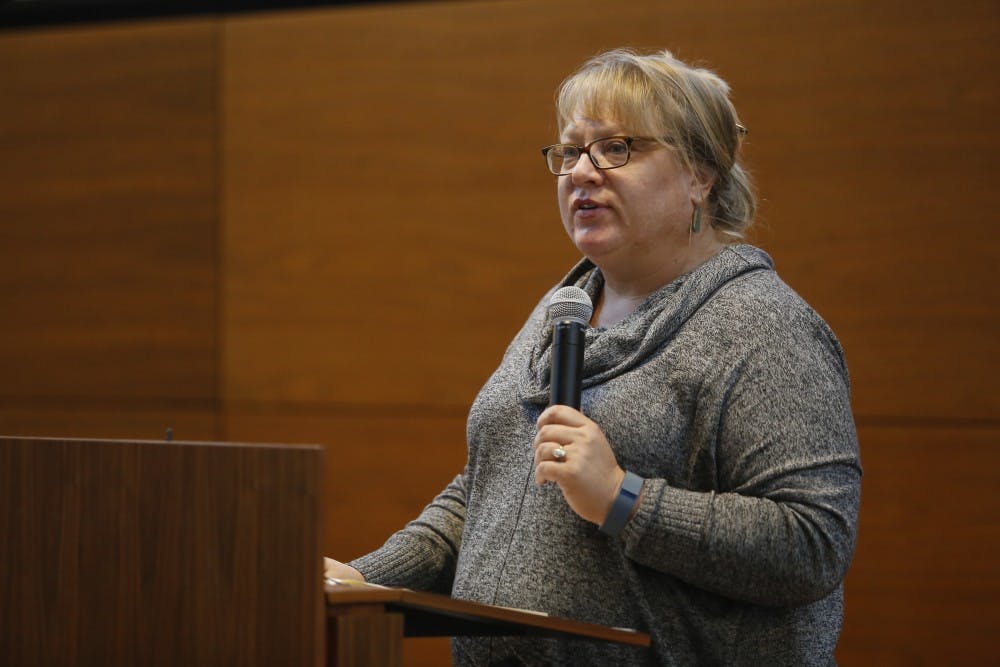Sixty refugees were scheduled to resettle in March 2017 in Bloomington. A year later, none have yet set foot here.
IU professor Elizabeth Dunn, who headed the effort to bring refugees and studies displacement, said these plans are indefinitely on hold mainly because of President Trump’s choice to reduce the number of refugees admitted to the United States each year from 110,000 to 45,000.
“The tragedy isn’t that refugees aren’t coming to Bloomington,” Dunn said. “The tragedy is that millions of people are stuck in Syria, where a war is raging, or in another country in inhumane conditions.”
Dunn said reducing the number of refugees admitted into the United States has squeezed refugee resettlement centers, which receive funds for each refugee they help. Fewer refugees coming in means less funding given to centers.
Exodus Refugee Immigration, a resettlement organization in Indianapolis, had planned to open an office in Bloomington in 2017, but now that so few refugees are being admitted, Exodus’s budget has been greatly reduced, Dunn said.
The organization has been forced to slash its existing staff, Dunn said, and cannot support a new center in Bloomington. Without a center, there is no way to resettle refugees here.
Dunn said another part of the funding problem is the number of refugees resettled so far this year is lower than it should be to meet the 45,000 target.
Only about 9,000 refugees will have been settled in the United States by the end of the first half of the fiscal year on March 30, she said. This puts the country on track to only resettle about 20,000 this fiscal year, less than half the number that could be admitted.
“It’s a political maneuver,” Dunn said, adding that reducing the number of refugees admitted and subsequently organization funding is a way to break down the infrastructure supporting resettlement.
Since Bloomington’s plans were put on hold, the Bloomington Refugee Support Network has shifted its focus, Diane Legomsky, chair of the network, said.
The group still fundraises for refugee resettlement in Indianapolis and around the world, but it has also moved toward helping asylum seekers, since refugees won’t be coming to Bloomington anytime soon.
Asylum seekers are individuals who come to the United States and claim protected status upon arrival, whereas refugees receive special status before they come.
Last semester BRSN worked with other groups to welcome 20 Venezuelan asylum seekers to Bloomington. Legomsky said BRSN has also helped asylum seekers with connecting to resources in town and applying for certain documents.
She added that the network of organizations and individuals across town who said they’d help welcome refugees last year are still ready, if the need ever arises again.
“We have the resources to able to welcome them whenever the state department chooses to send them," Legomsky said. "We’d be ready to welcome them, and I think they’d have a safe life in Bloomington."
Dunn said she is optimistic that at some point refugee resettlement numbers will go up and Bloomington might be reconsidered as a site.
“I don’t think it’s done forever,” Dunn said. “If we ever increase the number under another administration, Exodus has said Bloomington is their first choice.”




